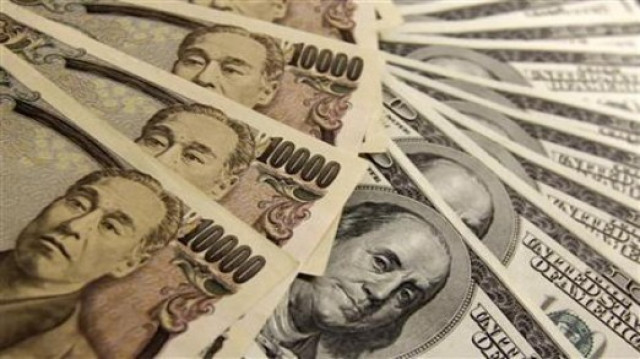Budget forecasts: Forex reserves to almost halve by June 2013
Annual plan committee paints a bleak picture for the next fiscal.

Next year’s fiscal forecasts for Pakistan are depressing at best.
The country’s forex reserves are expected to almost halve by July 2013 – from the much-touted high of $16 billion during the current government’s tenure – and import bill to surge with the country’s imports growing twice as fast as exports.
The forecasts were highlighted at the Annual Plan Coordination Committee (APCC) meeting on Thursday which approved next financial year’s development budget and annual plan for fiscal 2012-13.
According to the approved plan, the country’s gross official reserves may deplete to $8.24 billion by June 2013, which is 28%, or $3.2 billion, lower than what has been projected for close of this fiscal ending June 30. By this June, the plan states, gross official reserves will stand at $11.4 billion, which is $3.8 billion, or 25% lower than last June’s reserves level of $15.2 billion.
This drastic depletion, primarily because the country will have to repay a significant portion of the foreign debt, will have adverse implications for exchange rate that in return will fuel inflation due to increasing cost of imported goods.
Surging oil bill
Next year’s oil import bill has been estimated at $16.9 billion, against this year’s $15.9 billion.
The government has worked out the next year’s average crude oil rate at $114.9 per barrel, against this year’s average of $115.3 per barrel, despite expectations of increase in oil prices in the international market.
The current account deficit – gap between total foreign receipts and payments – is expected to widen to $5.3 billion, or 2.1% of total size of economy, in next fiscal. For the current fiscal, the current account deficit has been revised to $4.2 billion, or 1.8% of the GDP – $2.8 billion higher than original projections approved last year.
Dwindling exports, surging imports
Against a target of $25.8 billion, exports will contract by 2% and remain at $24.8 billion for this year, the APCC said. The exports target for the next fiscal has been approved at $25.9 billion, an increase of 4.7% over the current year’s revised target.
Imports, however, are projected to grow to $42.8 billion next year, 7.3% higher than this year’s revised imports of $40.2 billion. Next year, remittances are estimated to stand at $14.1 billion, against current year’s $13.2 billion.
The government is hoping it will receive $5.3 billion in fresh external loans next year. The International Monetary Fund has assessed Pakistan’s gross external financing requirements for fiscal 2012-13 at $10.2 billion – the gap will be filled from reserves. Total external debt is expected to stand at almost $69 billion – an increase of $2.3 billion within a year.
Growth figures
For the next financial year, the government has set 4.3% economic growth target while inflation has been projected at 10.5% – the sixth consecutive year of double-digit inflation. The agriculture sector is expected to grow by 4.1%, industrial 3.9% and services 4.6%.
Low savings, investment
Savings and investments in the current fiscal slipped to the lowest level in the country’s history.
Investment as a proportion of GDP stands at 12.5% while it was expected to grow to 13.8% in the current fiscal. Next fiscal’s projected investment ratio is 13.2%.
Similarly, savings have slipped to their lowest level. Against every Rs100, the nation saved only Rs10.7 while the target was Rs13.2. The APCC has set 11.1% as savings target for next fiscal.
Development budget
The APCC also recommended Rs350.2 billion for federal development programme and Rs475 billion for provinces’ annual development plans, bringing the total overall development budget to Rs825.2 billion, which is Rs95.2 billion, or 13%, higher than the current fiscal year’s budget of Rs730 billion.
The National Economic Council, headed by the prime minister, will consider the APCC recommendations for approval.
Published in The Express Tribune, May 11th, 2012.



















COMMENTS
Comments are moderated and generally will be posted if they are on-topic and not abusive.
For more information, please see our Comments FAQ